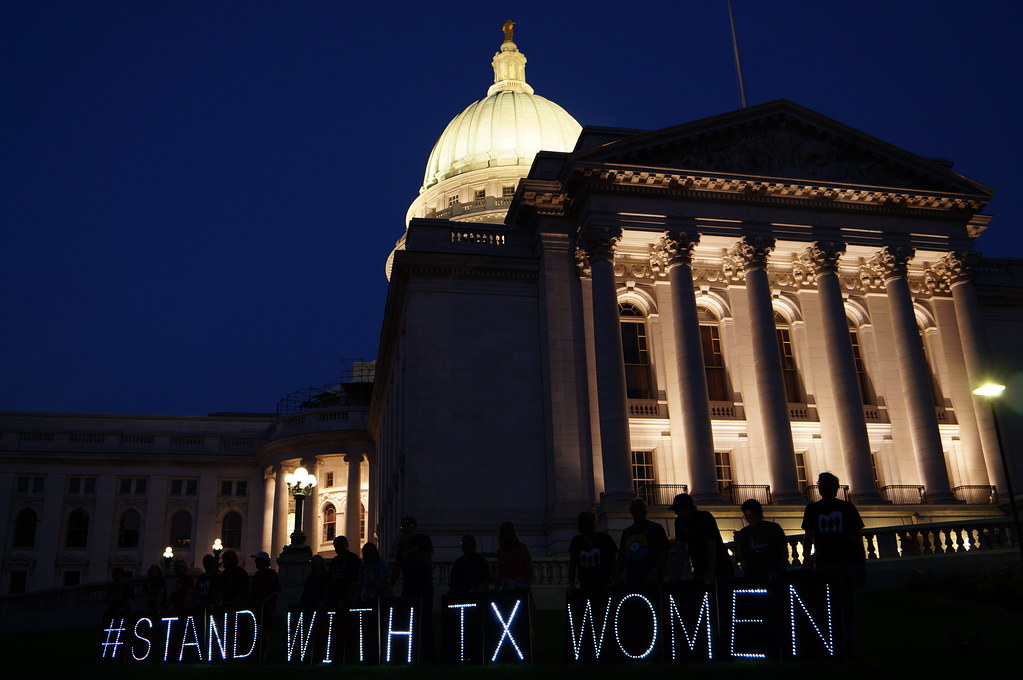By guest contributor Astha Bhattacharya*
Despite a new era of pro-choice feminism overtaking the globe, Texas has passed Senate Bill No. 8, instituting one of the world’s most stringent abortion bans. The bill, dubbed the “fetal heartbeat bill,” outlaws all abortions after the “first detectable heartbeat.” In this piece, I’ll take a two-pronged approach to the legislation. First, I’ll go over the scientific and medical challenges that the law presents. Then I’ll show how the law infringes on women and their globally recognized human and reproductive rights, primarily targeting certain groups of women.
SCIENTIFIC PERSPECTIVE
Science can’t say with certainty when an embryo becomes a “human being.” Researchers have recognized up to five distinct developmental stages, any of which could be a viable starting place for human life. The fourth step, which is viability, is clearly ascertainable. The point at which a fetus can successfully survive outside of the uterus with medical assistance is known as viability. This is the stage that the United States Supreme Court endorsed in Roe v. Wade. With today’s technologies, this stage can be reached around 24 weeks into pregnancy. Abortion cannot be prohibited before this point, according to precedent. Despite this, Texas law takes up a contrary path comprising of untenable criteria.
The Texas abortion bill appears to be based on the erroneous Potterian belief that an abortion as early as six weeks into a pregnancy prevents the heart from beating. The law’s wording, which seeks to prohibit abortions after the “first detectable heartbeat,” is questionable. This type of identification could occur as early as six weeks into the pregnancy. The real heart, on the other hand, does not begin forming until the eighth week of pregnancy and stays essentially unformed until the twentieth week. It was not a heartbeat that was found previously, but electrical cardiac activity within the embryonic cells. It’s also worth noting that it’s very feasible for a woman to go over the six-week mark without realizing she’s pregnant. The new rule will limit a woman’s abortion to around six weeks of her pregnancy, and making a pro-life argument based on the “first detectable heartbeat” threshold is completely misleading.
VIEWING WOMEN’S RIGHTS THROUGH THE PANORAMA OF INTERNATIONAL HUMAN RIGHTS

In addition to being premised on medical inaccuracies, the act is a direct attack on human rights and fundamental freedoms. Article 17 of the International Covenant on Civil and Political Rights [ICCPR] establishes the right to privacy as a commonly acknowledged human right. A woman’s right to bodily autonomy and the ability to make decisions concerning reproductive functions is fundamental to her right to privacy, as per the Working Group on Discrimination Against Women. Even the United Nations Human Rights Committee [HRC] held in the judgement of V.D.A. v. Argentina that denying women access to abortion is a breach of their right to privacy under the ICCPR. While the HRC has priorly declared that states have the power to regulate voluntary pregnancy terminations, it has also emphasised that such regulations should not interfere with women’s ability to exercise their other rights under the Covenant. Women’s right to privacy and physical autonomy, on the other hand, should be considered a prerequisite to their enjoyment of all other rights. While the HRC’s rulings are not legally binding on states parties, it is maintained that they must be taken into account in the spirit of good faith. Even if we turn a blind eye to such breaches of a woman’s right to privacy for a moment, another issue emerges swiftly.
Anyone who ‘aides or abets’ a woman seeking abortion in any manner can be sued for a minimum of $10,000 under the law. Any ordinary citizen in Texas can file such a lawsuit. Citizen’s bounty hunters would be enticed to interfere with a woman’s private bodily decision unduly in order to earn profits. Such arbitrary interference with one’s privacy is specifically prohibited by Article 12 of the Universal Declaration of Human Rights. Furthermore, the Special Rapporteur on torture and other cruel, inhuman, or degrading treatment or punishment concluded that obtaining information from women seeking medical care or abortion for the purpose of prosecution is torture or ill-treatment under the United Nations Convention against Torture. The Legislature has made it difficult for the courts to overturn the statute by relying on civilians rather than state officers to enforce it. As a result, the Supreme Court’s recent argument was not whether the statute is constitutional, but whether it may be challenged in court at all. As a result, Texas has served as a model for other governments looking to employ the private citizen enforcement loophole to avoid judicial intervention. To rub salt in the wound, private persons launching a lawsuit are not required to present any proof that the abortion occurred beyond six weeks of pregnancy, which means that legal abortions could be vulnerable to such lawsuits.

Additional criticism of the Act is that it will have a detrimental effect on particular groups of women. In other states, women can still access abortions beyond six weeks in Texas. This choice, however, will not be available to all socioeconomic groups equally. As a result, women from low-income families, women of colour, and undocumented women will bear the burden of this legislation. What’s more alarming is that it’s these women that account for the vast majority of abortion cases. According to recent research published in 2019, up to 70% of abortions in Texas were performed on women of colour. Traveling to another state or country to abort is not only exorbitant, but it also violates women’s rights. The HRC ruled in Whelan v. Ireland that forcing women to go outside of their native country to abort might be considered “cruel, inhuman, or degrading treatment,” and thus an infringement of their right under Article 7 of the ICCPR.
What’s more disheartening is that there is no exemption for rape survivors under the statute. Since it is so easy to pursue legal action against anyone who aids or abets the abortion of such victims, rape crisis centres are worried about how long they would be capable of supporting survivors following an assault. Any assistance they provide could come under the Act’s broad definition of “help,” putting them at risk of being sued. With the soaring surge in reporting of rape cases in Texas with each passing year, many rape victims will have insufficient access to post-assault care.
The proposed law is appalling on a number of fronts, from science to women’s rights. One can only speculate how far-reaching the ramifications will be now that the Supreme Court has refused to interfere with the law’s enactment. If other states follow Texas’ lead, women’s reproductive rights, which have been championed since Roe v. Wade, will be severely harmed in the U.S.
* Astha Bhattacharya is an undergraduate student at National Law University, Odisha. Her research interest includes International Law and Human Rights Discourse.
Photo Credits
“img_0533” by steevithak is licensed under CC BY-SA 2.0
“img_0538” by steevithak is licensed under CC BY-SA 2.0
“DSC07494” by Overpass Light Brigade is licensed under CC BY-NC 2.0
